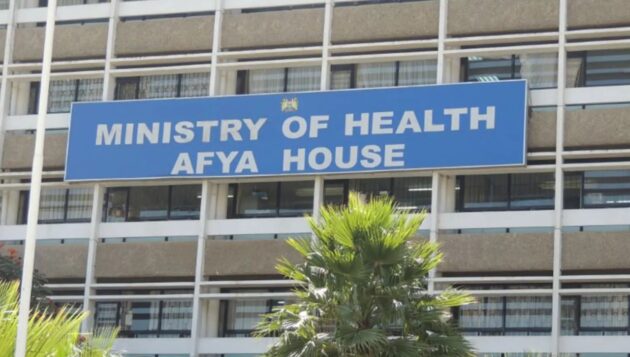
Billions Slashed as Health Ministry Warns of derailed UHC plan and Stalled Reforms » Capital News
NAIROBI, Kenya May 13 – The implementation of Universal Health Coverage plan is staring at a major crisis after the State Department for Public Health and Professional Standards suffered a massive Sh38.7 billion budget cut, threatening the implementation of key health programmes.
Documents submitted to the National Assembly by Health Principal Secretary Mary Muthoni Muriuki reveal that the department had requested Sh70 billion for the 2025/2026 financial year but was allocated only Sh31.3 billion less than half of its requirement.
“This leaves a financing gap of Sh38.7 billion, which will significantly undermine the delivery of essential public health functions and key priorities under the Bottom-Up Economic Transformation Agenda (BETA),” the PS stated.
The shortfall directly affects high-priority programmes such as the payment of medical interns, operationalization of new health structures, and equipping community health promoters. It also threatens the functioning of vital health institutions, research bodies, and regulatory agencies.
Interns’ Deployment in Limbo
Among the most heavily affected areas is the deployment of medical interns. The ministry requires Sh7.67 billion to deploy 5,449 interns by July 2025 but has only been allocated Sh4.02 billion leaving a gap of Sh3.65 billion.
“The ministry faces a serious risk of grounding the internship programme if this funding is not made available. This will affect the transition of graduates into the workforce and undermine service delivery in public hospitals,” Muthoni warned.
Community Health Promoters Undermined
While the government allocated Sh3.2 billion for stipends to over 107,000 Community Health Promoters (CHPs), there is no provision for administrative support and supervision. The department has requested Sh150 million to facilitate monitoring and evaluation, without which the programme risks poor implementation.
“The programme is central to the government’s shift to preventive and promotive healthcare, but lack of oversight funding could compromise quality and impact,” the PS noted.
The newly established State Department for Public Health and Professional Standards which was created through Executive Order No. 1 of 2023 has not been allocated a single shilling for its own operationalization. The ministry has requested Sh250 million to support basic administration and implementation of its approved staff structure.
“This is the department’s first full budget cycle since establishment. Without operational funding, its ability to coordinate and oversee health programmes nationally will be severely limited,” said the PS.
Research and Vaccine Capacity at Risk
The drive for vaccine self-sufficiency and biomedical research has also taken a hit. The Kenya Institute of Primate Research (KIPRE), which plays a vital role in developing vaccines and anti-venoms, has received no funding for its activities.
The department is seeking Sh500 million to support KIPRE’s operations.
In addition, Sh675 million is required to upgrade the National Quality Control Laboratory (NQCL) to meet World Health Organization (WHO) Maturity Level 3 standards.
This is crucial for regulating local pharmaceutical manufacturing and ensuring quality medical products.
The ministry has requested Sh350 million to roll out the National School Health and Nutrition Programme in collaboration with counties.
The funds would go toward hygienic school meal preparation, clean water, and sanitation infrastructure key to improving children’s health and education outcomes. However, no allocation has been made.